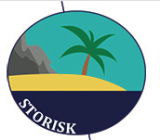Context and background
This 48-month project (2016-2020) aims at developing an integrated approach to the risks induced by climate- and sea- related hazards (i.e., coastal erosion, marine inundation and coral mortality) on small islands’ coastal areas in the Pacific Ocean (Tuamotu and Australes archipelagos in French Polynesia, Kiribati, Cook Islands) and the Indian Ocean (Reunion Island, Éparses Islands, Seychelles).

A central approach is the reconstruction and analysis of chains of impacts for both specific climate events (e.g., cyclones, El Nino) and gradual environmental changes (e.g., sea level rise, ocean warming and acidification), as well as of trajectories of vulnerability.
Applied to most of the case studies and associated with an in-depth analysis of the most recent knowledge from both physical and human sciences, such chains of impacts and trajectories of vulnerability help traduce the threats from current hazards and climate change into comprehensive “storylines of risk”. This allows advancing scientific knowledge a step forward (i.e., highlighting the trade-offs between current and future challenges), as well as engaging an empirically-based dialogue with local to regional and national stakeholders on how to address future threats (i.e., adaptation strategies).
Objectives
Gathering researchers from various disciplines (climatology, geomorphology, geophysics, ecology, human and environmental geography, political sciences, law), STORISK aims at showing that vulnerability varies
- from one place to another and
- from one event to another in a given area, and
- also changes over time.
Accordingly, it must be acknowledged that Small Islands will be concerned with various storylines of risk, and thus that context-specific adaptation-friendly decision-making processes are needed.
Urge benefits for the civil society beyond Small islands are expected, as STORISK overarching objective is to clarify knowledge on the impacts of extreme events and gradual changes in the aim of feeding local to national stakeholders with both a sound understanding of what is at stake with climate change, and key guidelines to enhance robust adaptation from now on.
Other expected benefits for coastal areas at large are a balanced understanding of the climate-related uncertainty issue, a didactic explanation of the processes going from hazards to impacts and vulnerability, and the highlighting of the most promising ways to enhance adaptation to climate change.



